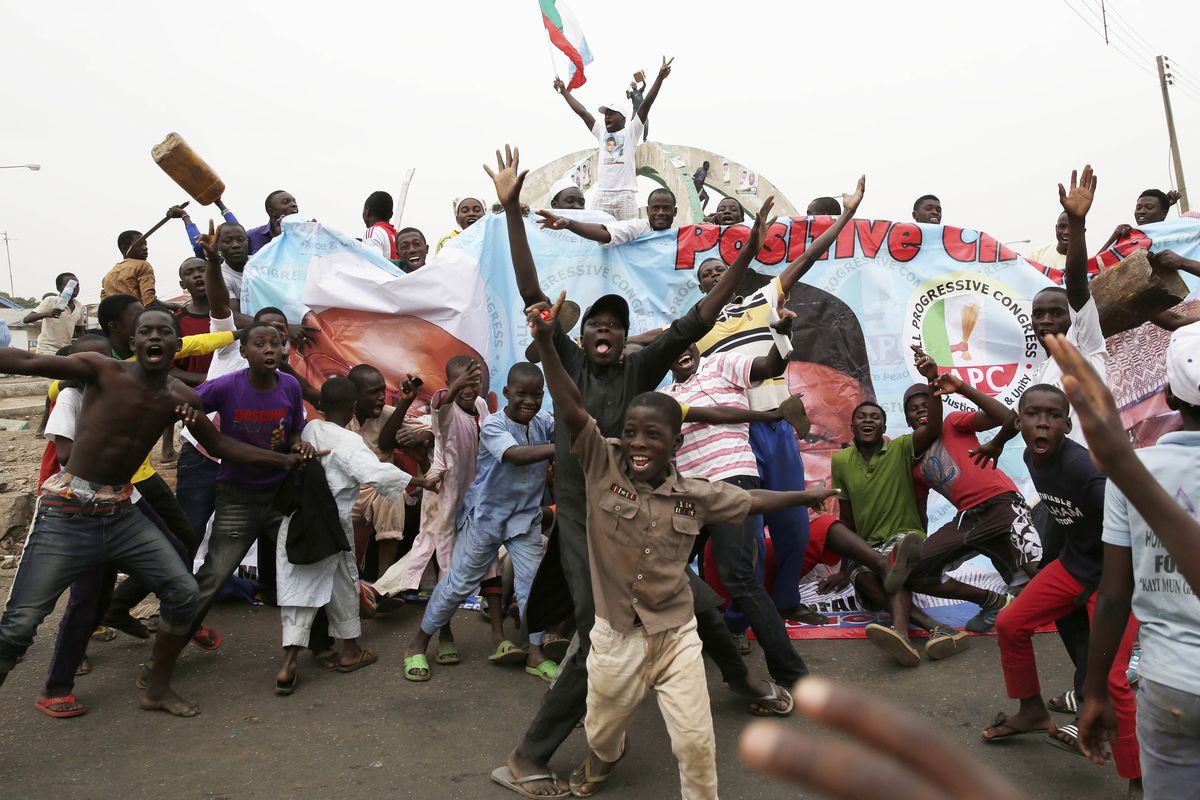Buhari victor in Nigeria vote
Jonathan concedes in historic transfer of power

ABUJA, Nigeria – Amid anger over an Islamic insurgency that has claimed thousands of lives, Nigerians threw out the incumbent and elected a 72-year-old former military dictator in a historic transfer of power officially announced early today following the nation’s most hotly contested election ever.
President Goodluck Jonathan conceded defeat to former Gen. Muhammadu Buhari, paving the way for an unprecedented peaceful transfer of power in Africa’s most populous nation.
“Nobody’s ambition is worth the blood of any Nigerian,” Jonathan said in a televised address to the nation. “I promised the country free and fair elections. I have kept my word.”
It will be the first time in Nigeria’s history that an opposition party has democratically taken control of the country from the ruling party – considered a sign of the West African nation’s maturing young democracy. Jonathan’s party has governed since decades of military dictatorship ended in 1999.
Celebrations erupted throughout Buhari’s strongholds in northern Nigeria and around his campaign headquarters in Abuja. Cars honked and people waved brooms in the air – a symbol of Buhari’s campaign promise to sweep out Nigeria’s endemic corruption.
Buhari was to address a news conference later today.
Jonathan’s concession came before the final announcement from the Independent National Electoral Commission that Buhari had been elected.
Commission chairman Attahiru Jega said Buhari received 15,424,921 votes to Jonathan’s 12,853,162. He said among 12 trailing candidates the only woman, Remy Sonaiya, received 13,076 votes.
Both candidates satisfied the requirement for a victor to win at least 25 percent of votes in two-thirds of the 36 states and the Federal Capital Territory, Jega said – Buhari in 27 states and Jonathan in 26.
Buhari won 19 states to Jonathan’s 17 and the small Federal Capital Territory.
Buhari, who ruled with an iron hand during a brief tenure in the 1980s, dealt a decisive defeat to Jonathan.
He won overwhelmingly in the final state to report results, northeastern Borno, the birthplace of the brutal Islamic insurgent group Boko Haram, and the one that has endured the worst suffering from the Islamic uprising that has swept through villages and towns in the north, killing thousands of civilians and kidnapping many more, including hundreds of schoolgirls.
Besides dominating, as expected, in his northern strongholds, Buhari crucially carried Lagos state, Nigeria’s commercial hub with the largest number of voters, though fewer than one-third of eligible voters participated. He also took other critical competitive states in the country’s southwest.
Spontaneous celebrations sprang up across cities in northern Nigeria, where Buhari is almost revered. Young men on motor scooters performed wheelies as hundreds of youths chanted, “Change! Change! Change!” and cars honked their horns in support. In Kano state, Buhari delivered a crushing defeat to Jonathan, winning 1.9 million votes to Jonathan’s 215,800.
Outside Buhari’s party headquarters in Abuja, women chanted songs and used grass brooms to elaborately sweep the way ahead of arriving dignitaries in flamboyant robes.